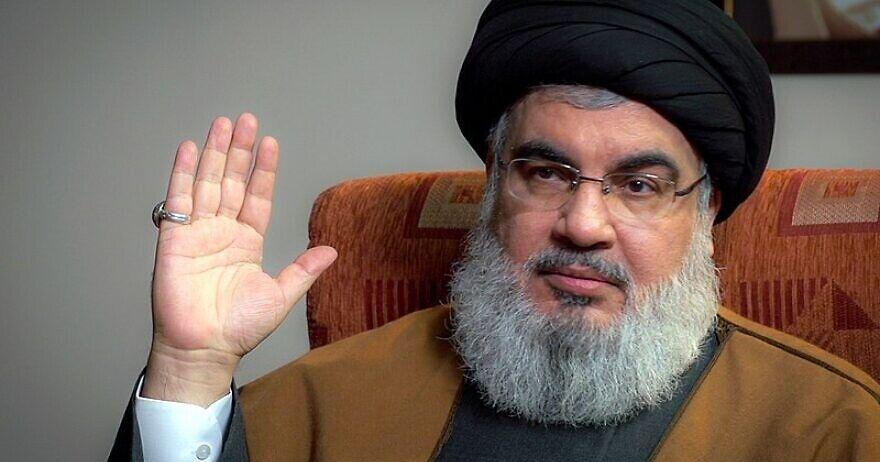BEIRUT (AP) — Lebanon's Hezbollah has new weapons and intelligence capabilities that could help it attack more key positions inside Israel in the event of all-out war, the group's leader warned Wednesday.
Nasrallah's comments came as a cross-border conflict between Hezbollah and Israel that has been simmering for months is reaching a boiling point, a day after a senior US envoy met with Lebanese officials in the latest attempt to ease tensions.
“We now have new weapons, but I won't say what they are,” he said in a televised address mourning a top Hezbollah commander killed by an Israeli air strike in southern Lebanon last week. “Once a decision is made, they will be seen on the front lines.”
For the first time since the war between Israel and Hamas began in the Gaza Strip in October, Hezbollah used locally made explosive drones and surface-to-air missiles to ward off Israeli warplanes.
Nasrallah said in 2021 that Hezbollah had 100,000 fighters but now insists the number is much higher, without giving further details. He also said he had rejected offers from regional allies and groups to add tens of thousands of fighters to Hezbollah.
The roughly 10-minute video, purportedly taken by a Hezbollah surveillance drone and released on Tuesday, shows parts of the city of Haifa, far from the Israeli-Lebanese border. Nasrallah said in a speech on Wednesday that Hezbollah has more footage, posing a clear threat that it could reach its base deep inside Israel.
Israeli Lt. Gen. Helgi Halevi, visiting Israeli air defense soldiers near the Lebanese border on Wednesday, said Israel is aware of Hezbollah's capabilities shown in the video and has solutions to these threats.
“Obviously, we have much greater capabilities,” he said. “I think the adversary only knows a small part of them, so (we) intend to confront them at the appropriate time.”
Hezbollah, an ally of the Palestinian group Hamas, has been exchanging near-daily attacks with Israel since the war in Gaza erupted on October 7, aiming to force Israeli troops out of the embattled Gaza Strip.
Hezbollah attacks have intensified since Israel expanded its offensive on the southern Gaza city of Rafah in May, and further intensified in June when an Israeli attack killed a senior Hezbollah official, Taleb Sami Abdullah, becoming the highest-ranking leader killed so far in the Israel-Hamas war.
The Israeli military also said on Tuesday it had “approved and verified” plans to attack Lebanon, but the decision on whether to actually launch such an operation must be taken by the country's political leaders.
The warnings from both sides followed a visit by Amos Hochstein, a senior adviser to U.S. President Joe Biden, who met with Lebanese and Israeli officials in the latest effort to ease tensions. Hochstein told reporters in Beirut on Tuesday that this was a “very serious situation” and that a diplomatic solution to prevent a larger war was urgently needed.
Nasrallah said a broader war with Lebanon would have regional ramifications and that Hezbollah would attack other countries in the region that support Israel's war, citing Cyprus, which hosts Israeli military training. He suggested that Cyprus might allow Israel to use its bases in the event of a broader war.
Cypriot President Nikos Christodoulides responded by saying his country was “not involved in any military operations” in the region. Pointing to the Cyprus-Gaza maritime corridor used to deliver aid to the Palestinian territories, he said Cyprus was “part of the solution, not part of the problem.”
Only a ceasefire in Gaza would halt fighting on the Lebanese-Israeli border or attacks on Western- or Israeli-linked targets by Houthi rebels in Yemen and Iraqi groups allied with Hezbollah.
Israel sees Hezbollah as its most direct threat, and the two countries fought a 34-day war in 2006 that ended in a stalemate. Hezbollah's military capabilities have been significantly strengthened since then, and the United States and Israel estimate that the group, along with other factions, has about 150,000 missiles and rockets. Hezbollah is also working on developing precision-guided missiles.
Hezbollah said at least four Hezbollah fighters were killed in Israeli attacks on Wednesday, as Hochstein returned home for new meetings in Israel.
Lebanese state media reported the attacks took place along the border and near the coastal city of Tyre, about 30 kilometers (19 miles) away. The Israeli army said two Hezbollah launches damaged several vehicles in northern Israel.
Kamel Mohanna, head of the Amer Association, a non-governmental organization that provides medical services across Lebanon, said its medical center in the town of Khiam had been damaged in the Israeli shelling.
Israeli attacks have killed more than 400 people in Lebanon, most of them Hezbollah and other militants, but more than 80 civilians and non-combatants have also died. In northern Israel, attacks from Lebanon have killed 16 soldiers and 11 civilians.
Associated Press writers Melanie Lidman and Josef Federman in Jerusalem and Menelaos Hadjikostis in Nicosia, Cyprus, contributed to this report.
Copyright 2024 The Associated Press. All rights reserved. This material may not be published, broadcast, rewritten or redistributed without permission.



